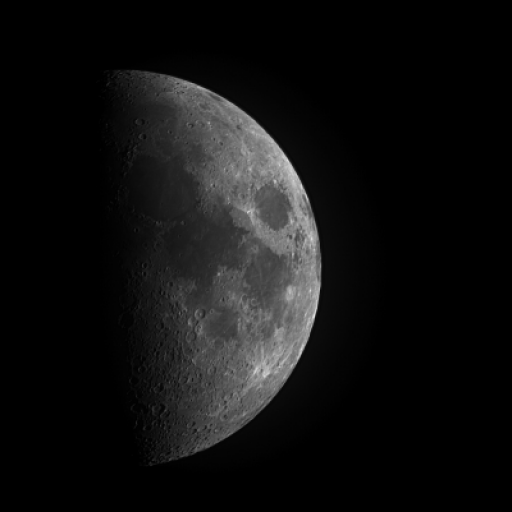Except for India and Pakistan, the other players have switched sides in the new great game. But Kashmir remains the pivot.
Jinnah bemoaned the ‘moth-eaten’ territory that constituted Pakistan. It was water-starved and narrow with very few resources to boast of, save for its location. But that was the whole point.
Buffer state
As World War II raged, Britain found itself losing in its victory. A tremendous price was to be paid in life, fortune and empire. Closer to the end of the great conflict in 1945, it realised that it could no longer financially and militarily afford to hold on to prized colony India.
But it was not to bow out without indulging in typical English ‘divide and rule’ machination. The partition of the subcontinent was not the endgame. All through the 19th century, the British and Russia had indulged in a Great Game of colonial expansionism that played out most strongly in Afghanistan. Therefore, the strategic objective in the 1940s was to physically separate a soon-to-be independent India from the then USSR and Afghanistan. Pakistan was to be the buffer state to realise the insidious British strategic objective. That explains why the India-Pakistan border is roughly parallel to the Pakistan-Afghanistan border. Radcliffe was instructed to draw the parallel line on the map as quickly as he could, which he did, while being plagued by violent dysentery.
Uneasy coexistence
With WWII at its crescendo in 1942, Gandhi launched the ill-fated Quit India movement. The British were happy to put both Gandhi and Nehru in jail, while they aggressively propped up the Muslim League. As a result, when elections were held in 1946, with Gandhi and Nehru only having been recently released, a leaderless and rudderless Congress lost to the Muslim League spectacularly in the Muslim majority provinces of what would then be Pakistan. Interestingly, the Muslim League had failed pathetically in the same provinces in the previous election when Congress was politically active. Jinnah had been written off as a failure by Nehru.
But he bounced back with British support. Gone was the pork eating, scotch swilling Mumbai aristocrat, whose wife had been a Parsi and who was not only from the minority Shia Ismaili sect but whose ancestors were Hindu until just a generation before. Jinnah, who had once fought with Gandhi to avoid splitting Indians into communal and casteist lines now became a westernised Islamist, a mascot for Pakistan. He was also imperialist Churchill’s pet.
For some time, the Congress shared power with the Muslim League. But it was near impossible for the two parties to work together. However, Pakistan was still not inevitable. Jinnah had still been prepared to accept a loose confederation instead of a hard partition. Patel saw through the trap. The confederation would lead to a splintering of India before long. He supported partition on the condition that the bulk of the princely states would be absorbed into India and that borders would be fixed. Patel did not want a Great Game within India’s borders.
Kashmir to the fore
Then comes the question of Kashmir. Its strategic location at the crossroads of south and central Asia cannot be underestimated. But the Maharaja chose to be independent. Patel was willing to let go of Kashmir. He spoke to future PM of Pakistan, Liaquat Ali Khan about letting Pakistan take over Kashmir should Hyderabad come over uncontested into India.
However, Nehru was keen to assimilate his native land into India. Pakistan’s impatience did not help. It sent tribal raiders and troops to conquer Kashmir by force. India retaliated militarily and seemed all set to secure the whole princely state including what is now J&K, Ladakh, POK, and Gilgit Baltistan. That is where the British played their great game again.
Though independent during the 1948 war, the two armies were largely controlled by British officers. The Indian army’s advance halted without it taking POK and Gilgit-Baltistan. The pretext was that Indian ally Sheikh Abdullah’s remit did not extend into POK. But it was really the machinations of the British army officers that stopped the advance.
What complicated matters was a standstill agreement of sorts with Nehru referring the dispute to the UN – under British advice of course. Consequently, Pakistan kept the strategic territory to the North which bordered the then USSR and Afghanistan. India had access to water from Kashmir, while Pakistan was left dry and thirsty. This was in 1948. Jinnah died that year.
The situation changed in 1949. Russia handed over Xinjiang to China. As a result, China now had the Kashmir border. The west didn’t mind that too much. The target was still the USSR. Pakistan got its first crack at becoming a gun for hire. Peshawar was an US military base from where U2 spy planes were launched into the USSR.
China snatched Tibet in 1950 and absorbed Aksai Chin through a contested border with India. In 1963, Pakistan conceded the Shaksgam valley to China leading to the development of the spectacular Karakoram highway linking it with Pakistan. This was the culmination of the great game unleashed by the British at partition.
CPEC and Article 370
Cut to the present, Pakistan finds itself firmly in China’s lap. The China Pakistan Economic Corridor passes through the same arterial Gilgit-Baltistan, which the British conspired to hand over to Pakistan in 1948. The CPEC provides China with direct access to the warm waters of the Gulf. From the upcoming naval base in Gwadar, it can directly access and control the flow of oil from the Middle East. This is a matter of immense strategic threat to both the US and India. The US now needs India more than ever.
That explains why Article 370 was withdrawn in August 2019. A move of this magnitude could not have been possible without US support. The intent is to pressure Pakistan and China with the threat that has fully absorbed J&K, POK and Gilgit-Baltistan are next. How it must hurt the west to have to undo the very mess they helped create. It’s some consolation for both the US and China that they can make lots of money selling arms to India and Pakistan while fighting in the shadows amongst themselves.
The great game comes full circle
If you found this interesting, stay connected here




Recent Comments